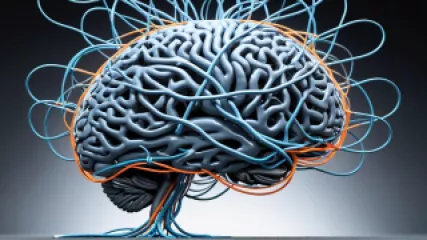Enhancing Cognitive Flexibility: A Step-by-Step Guide
Cognitive flexibility is the ability to adapt our thinking and behavior in response to new or changing situations. It plays a crucial role in our daily lives, enabling us to navigate challenges, solve problems, and embrace novel ideas. By enhancing cognitive flexibility, we can improve our emotional well-being, boost creativity, and enhance overall cognitive functioning.
What is Cognitive Flexibility?
Cognitive flexibility refers to our brain's capacity to transition between different thoughts, perspectives, and tasks. It involves being able to shift our attention, switch between mental sets, and adjust our behavior based on the demands of a particular situation.
Think of cognitive flexibility as a mental muscle that allows us to break free from rigid thinking patterns and embrace new possibilities. It enables us to consider alternative solutions, see multiple perspectives, and adapt to unexpected changes.
Individuals with high cognitive flexibility are often more open-minded, adaptable, and resilient. They can easily switch gears, think creatively, and find innovative solutions to problems. On the other hand, those with limited cognitive flexibility may struggle with change, become easily overwhelmed, and have difficulty adapting to new circumstances.
The Benefits of Cognitive Flexibility
Improving cognitive flexibility can have numerous benefits in various aspects of our lives. Here are some key advantages:
- Enhanced problem-solving skills: Cognitive flexibility allows us to approach problems from different angles, consider multiple solutions, and think outside the box. It expands our problem-solving repertoire, enabling us to overcome obstacles more effectively.
- Increased creativity: Cognitive flexibility fosters divergent thinking, which is essential for generating creative ideas and making connections between seemingly unrelated concepts. It helps us break free from conventional patterns of thinking and explore innovative possibilities.
- Improved decision-making: By being able to consider different perspectives and weigh various options, cognitive flexibility enhances our decision-making abilities. It allows us to evaluate the pros and cons of different choices and make more informed and adaptive decisions.
- Better emotional well-being: Cognitive flexibility plays a significant role in emotional regulation. It helps us reframe negative thoughts, manage stress, and adaptively respond to challenging emotions. By cultivating cognitive flexibility, we can experience greater emotional resilience and overall well-being.
- Enhanced learning and memory: Cognitive flexibility aids in learning new information and integrating it with existing knowledge. It facilitates the formation of new neural connections, which can improve memory retention and retrieval.
Techniques to Improve Cognitive Flexibility
Fortunately, cognitive flexibility is not a fixed trait and can be developed and strengthened over time. Here are some techniques to enhance your cognitive flexibility:
1. Embrace Novel Experiences
Expose yourself to new and unfamiliar situations to challenge your brain's accustomed patterns. Engage in activities that require you to learn new skills, explore different environments, or interact with diverse groups of people. This exposure to novelty can stimulate cognitive flexibility and expand your mental horizons.
2. Practice Mindfulness
Mindfulness meditation can help cultivate cognitive flexibility by training your mind to observe thoughts and emotions without judgment. Regular mindfulness practice enhances awareness of your thought patterns, allowing you to consciously choose alternative perspectives and responses.
3. Engage in Brain-Training Exercises
Various brain-training exercises and games can improve cognitive flexibility. Activities like puzzles, crosswords, and memory games challenge your brain to think flexibly and adaptively. Online platforms and mobile applications offer a wide range of cognitive training programs specifically designed to enhance cognitive flexibility.
4. Seek Out New Perspectives
Actively seek out diverse viewpoints and engage in discussions with people who hold different opinions or come from different backgrounds. This exposure to alternative perspectives can help broaden your own thinking and foster cognitive flexibility.
5. Practice Cognitive Restructuring
Cognitive restructuring involves challenging and reframing automatic negative thoughts or limiting beliefs. When faced with a negative or rigid thought, consciously question its validity and consider alternative explanations or viewpoints. By actively challenging your thoughts, you can open up possibilities and expand your cognitive flexibility.
6. Embrace Uncertainty
Learn to tolerate ambiguity and uncertainty. Practice stepping out of your comfort zone and intentionally exposing yourself to situations where outcomes are unpredictable. Embracing uncertainty can help reduce anxiety and increase your ability to adapt and adjust to unexpected changes.
Conclusion
Cognitive flexibility is a valuable skill that can be cultivated and enhanced through practice. By incorporating techniques such as embracing novel experiences, practicing mindfulness, engaging in brain-training exercises, seeking out new perspectives, practicing cognitive restructuring, and embracing uncertainty, you can improve your cognitive flexibility and experience the associated benefits in various areas of your life. Remember, developing cognitive flexibility takes time and effort, but the rewards are well worth it. So, start incorporating these techniques into your daily routine and experience the positive impact on your cognitive functioning and overall well-being.






